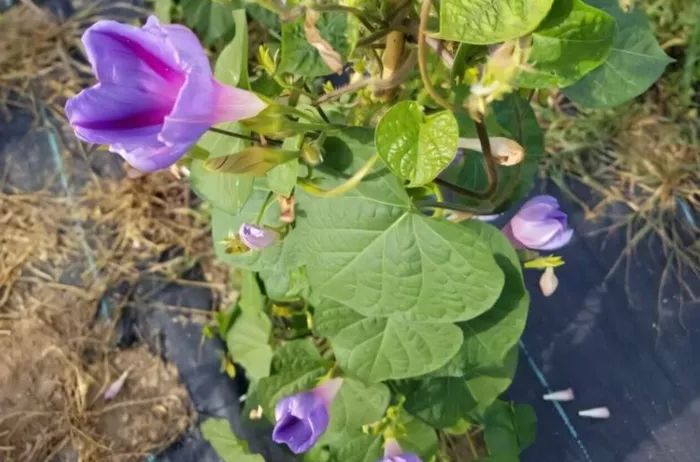A recent study by the University of Michigan has found that morning glory plants (Ipomoea purpurea) resistant to glyphosate, the active ingredient in RoundUp, also show resistance to damage from herbivorous insects. Conversely, plants that are susceptible to glyphosate also suffer more damage from these insects. The findings suggest that glyphosate may disrupt the natural co-evolution between plants and their insect herbivores.
The research, led by doctoral student Grace Zhang and Professor Regina Baucom, was published in *New Phytologist*. Zhang planted 1,600 morning glory plants at U-M’s Matthaei Botanical Gardens, treating half with glyphosate. She recorded both glyphosate damage and insect damage, noting patterns such as chewed holes, nibbled leaf margins, and surface feeding by insects. While glyphosate-treated plants had more insect damage overall, plants resistant to glyphosate showed less insect damage compared to susceptible ones.
Interestingly, Zhang found that glyphosate resistance was linked to better plant fitness, with resistant plants producing more seeds. This suggests that as glyphosate resistance evolves, it may also lead to increased resistance to insect damage. While the exact mechanism behind this is unclear, the researchers hypothesize that glyphosate-resistant plants may possess detoxification pathways that allow them to continue producing chemical compounds essential for insect defense.
This study adds to growing evidence that herbicides like glyphosate can affect plant-insect interactions on a broader ecological scale. Zhang and Baucom aim to further explore how glyphosate impacts the relationship between plants and their natural predators, challenging traditional views on herbicide resistance.
Related topics:
- Why Your Spring Plants Might Be Blooming in Fall – The Surprising Cause
- Avangrid, Parent Company of UI, Plants 2 Redbud Trees in West Haven
- Shopper Furious After Nursery Tries to Sell Dangerous Plant That Could Destroy Property


